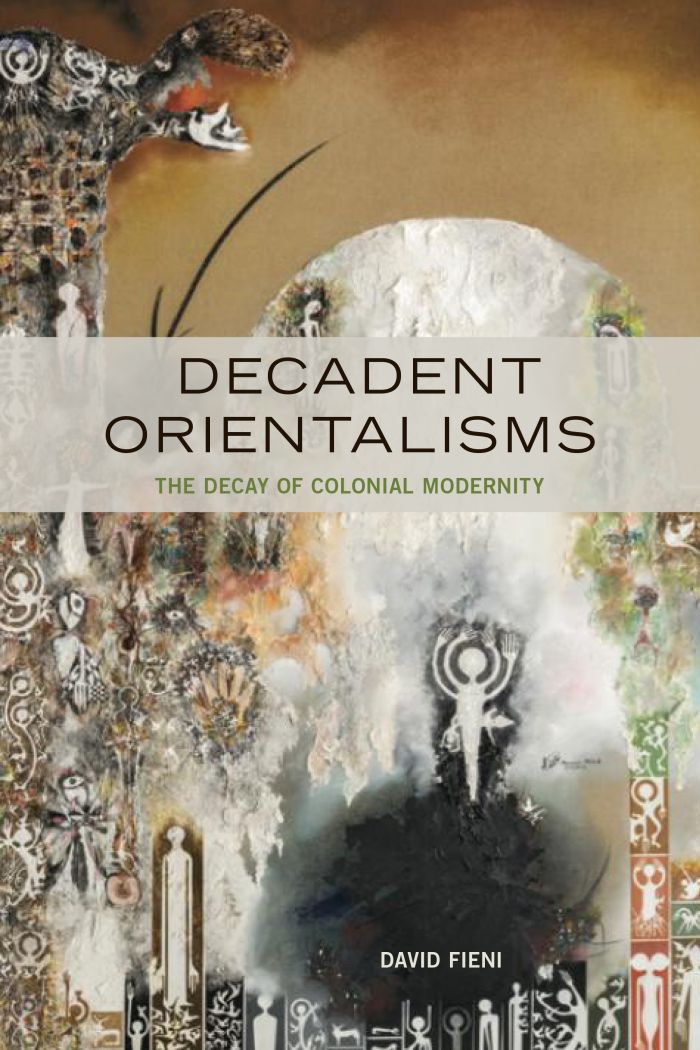Decadent Orientalisms
The Decay of Colonial Modernity

This book can be opened with

Decadent Orientalisms presents a sustained critique of the ways Orientalism and decadence have formed a joint discursive mode of the imperial imagination. Attentive to historical and literary configurations of language, race, religion, and power, Fieni shows the importance of understanding Western discourses of Eastern decline and obsolescence together with Arab and Islamic responses in which the language of decadence returns as a characteristic of the West.
Taking seriously Edward Said’s claim that Orientalism is a “style of having power,” Fieni works historically through the aesthetic and ideological effects of Orientalist style, showing how it is at once comparative, descriptive, and performative. Orientalism, the book argues, relies upon decadence as the figure through which its positivist scientific claims become redistributed as speech acts—“truths” that establish dominance. Rather than attending to Orientalism as a repertoire of clichés and stereotypes, Decadent Orientalisms considers the systemic epistemological consequences of the diffuse, yet coherent network of institutions that have constituted Orientalism’s power.
David Fieni’s Decadent Orientalisms makes several important and timely contributions to the fields of postcolonial, French and Francophone studies, and Middle East studies. Thoroughly researched and written in a vivid, engaging, and accessible style, the book will be of interest to students and scholars working in a range of fields.—Olivia C. Harrison, University of Southern California
Rather than a one-sided account of orientalism or counter-orientalism, Decadent Orientalisms provides a rich model of comparativism. The book will be an important contribution to ongoing debates about comparative and world literature as well as to nineteenth- and twentieth-century Arabic and French literary studies.—Madeleine Dobie, Columbia University
This study will be appreciated by readers familiar with the work of Edward Said and the literature of postcolonial interpretations of Franco-Algerian relations. Recommended.—Choice
Introduction: Orientalist Decadence | 1
Part I: (Dis)integrating Semitism: French and Arabic in the Twilight of the Ottoman Empire
1. French Decadence, Arab Awakenings: Figures of Decay in the Nahda | 31
2. Al-Shidyaq’s Decadent Carnival | 52
3. From Dreyfus in the Colony to Céline’s Anti-Semitic Style | 68
Part II: Working Through Postcolonial Decadence
4. Resurrecting Colonial Decadence in Independent Algeria | 97
5. Algerian Women and the Invention of Literary Mourning | 118
6. Virtual Secularization: Abdelwahab Meddeb’s “Walking Cure” and the Immigrant Body in France | 136
Conclusion: Toward a Contrapuntal Double Critique of Colonial Modernity | 159
Acknowledgments | 173
Notes | 177
Select Bibliography | 203
Index | 215




